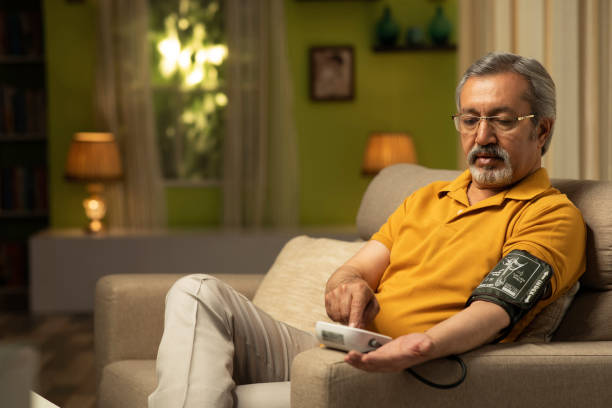World Hypertension Day 2022: High blood pressure is known as the silent killer for good reason. The majority of the time, there are no apparent indicators of hypertension, and even if you do have symptoms, you may dismiss them as normal fatigue, work pressure, or exercise. However, ignoring BP concerns can be fatal, and, in the worst circumstances, can result in a heart attack, heart failure, aneurysm, stroke, memory disorders, or dementia. Regular blood pressure monitoring is the key to avoiding major diseases.
Men are more likely than women to suffer from hypertension, which affects 1.13 billion people globally. However, just 1 in 5 individuals have it under control, leaving others at risk for developing issues. Incidences of hypertension have risen sharply around the globe, and while it was once more prevalent in older age groups, we are now seeing many new instances of hypertension among young individuals.
One should not disregard frequent signs of high blood pressure, such as strong headaches, blurred vision, trouble breathing, especially after physical exercise, chest tightness, and easy fatigue. Untreated high blood pressure can negatively impact your health and lead to major issues.
SYMPTOMS OF HIGH BLOOD PRESSURE
Nose Bleeding
Not only may sinusitis and continuous blowing of the nose cause nosebleeds, but so does excessive blood pressure. If you are one of those who have had nasal bleeding, you should simply inform your doctor.
Headaches
If you experience a constant pounding headache, your blood pressure may be elevated. The majority of individuals with hypertension may get headaches. These bothersome headaches will take your serenity. Therefore, stay watchful and seek treatment promptly.
Patients with severe headaches, especially in the occipital region (posterior portion of the skull), should get their blood pressure checked often.
Fatigue
If you are unable to do your work duties or household activities easily, you may have high blood pressure. Feeling weary while doing nothing? Reach out to your treating physician for additional examination.
Breathlessness
When blood pressure is elevated, one may also experience difficulties breathing. This is one of the most prevalent hypertension symptoms.
Blurred Vision
Untreated hypertension can cause visual changes. Consequently, one will experience eyesight issues. Their vision will be impaired.
Vision blurring, the development of black patches in the visual field, or abrupt, full loss of vision are additional signs of hypertension that should be addressed seriously.
Chest Pain
It is observed when blood pressure is elevated. After seeing these symptoms, you should seek quick care. Ignoring these signs may result in severe consequences in the future.
How Serious Is This Issue?
Hypertension can have a disastrous effect on the heart, resulting in the hardening and thickening of the heart’s arteries, thereby reducing the heart’s blood supply; in the worst cases, it can cause a heart attack in addition to other life-threatening conditions caused by affecting other organs.
As a result of prolonged uncontrolled hypertension, certain hypertensive patients may have a myocardial infarction, or heart attack, as well as chest discomfort and restlessness. Hypertensive heart failure is a dangerous ailment that can manifest as low oxygen levels, trouble sleeping owing to dyspnea (due to water-filled lungs), swelling of the legs, and chest discomfort; such patients would be admitted to the intensive care unit if not treated promptly. Epistaxis, or bleeding from the nose, can be a dangerous consequence of high blood pressure and may necessitate immediate admission to the intensive care unit. Therefore, it is preferable to undergo routine health examinations, obtain a timely diagnosis, and receive prompt treatment.
Managing Blood Pressure
If you have high blood pressure, there are several things you can do on a daily basis to keep it under control.
You may start with a nutritious diet, then maintain a healthy weight, get more active, and avoid tobacco and alcohol. In addition, modifying other everyday routines can go a long way toward helping you maintain blood pressure readings.













